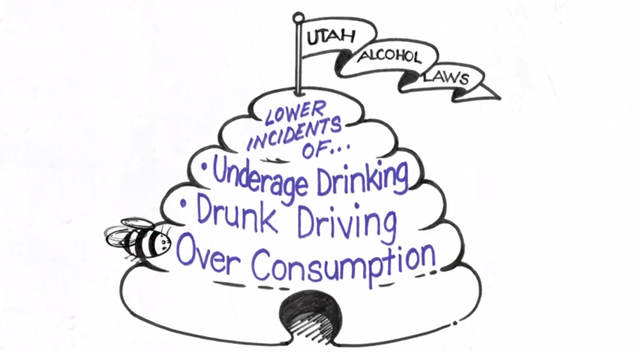Often mocked for its strict liquor laws, Utah’s restrictions on the supply of alcohol have recently received a strong endorsement from leaders of The Church of Jesus Christ of Latter-day Saints (the Mormons). The debate over Utah's laws has been replicated by a similar debate in Australia in recent months.
Citing federal highway statistics and other independent data, the Church has said that Utah has the lowest number of alcohol-related traffic deaths per capita in the U.S., lower underage drinking figures, less problems with over-consumption and the lowest prevalence of binge-drinking (2010).

Police and emergency services treat victim in Sydney night spot. © Gordon McComiskie
The state, which has a Church member population of approximately 62%, has long had strict laws regarding the sale of alcohol. Church leaders have now encouraged the state legislature to maintain these laws which, in their view, make the state a safer and better place to live than many other cities in the U.S. Nevertheless, such laws exist in other American states with similar positive results.
Under pressure from liquor outlets and pubs and clubs to “liberalise” state laws, the situation facing the Utah legislature has strong echoes in Australia in a major controversy about alcohol-fuelled violence and negative health outcomes from excessive liquor consumption.
Day after day, recently, the Australian press has been filled with articles about the impact of alcohol abuse on daily life in this country. This followed on from the deaths in the Sydney nightclub districts of two young men from so-called “king hits” or “cowards’ punches”, allegedly perpetrated by individuals under the influence of alcohol and drugs. A number of others have been severely injured in similar circumstances.
Responding to significant public concerns, and in the face of pressure from the alcohol industry to do the contrary, the NSW state government last week announced significant changes to local laws, including early closing times for pubs and clubs, restrictions on bottle shop opening hours, and increased penalties for violence associated with drunkenness.

Utah alcohol laws provide major benefit to the community.
Calls have been made by Australian medical authorities for there to be a halt to the Australian drinking culture because of the high level of illness and personal injury associated with heavy alcohol consumption.
The Church offers no advice to Australian state governments on the way to frame their own legislation and acknowledges alcohol's socially accepted place in society. However, local authorities may find relevant the assertive approach to liquor sales by the Utah state legislature. While regulations in one city and cultural tradition will not necessarily work in another, the results in Utah speak for themselves.
From a Latter-day Saint perspective, there are three conclusions one can draw from these results:
- Where alcohol is available to excess, excessive consumption is the natural consequence. Where sensible restrictions are instituted, the blight on the lives of people through excessive alcohol consumption is reduced.
- There is a major impact on young people when schools, churches and state institutions assertively work together to educate them about the long-term effects of alcohol abuse.
- Where a society and the families within it instill within young people strong personal values and a purpose in life, there is significantly less likelihood that they will fill the void in their lives by drug and alcohol consumption.
To read the full statement by the Church in relation to these laws, click here.